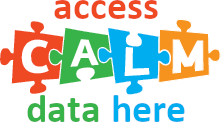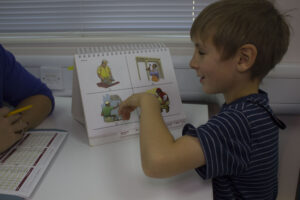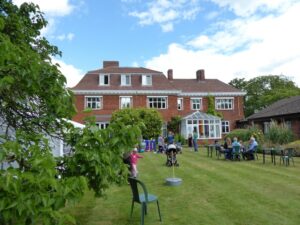|
|
 |
What is CALM?
In 2014, a research project for children with difficulties in attention, learning and/or memory was established at the MRC Cognition and Brain Sciences Unit (MRC CBU), under the Directorship of Professor Susan Gathercole. The project was called the Centre for Attention, Learning and Memory and is widely known as ‘CALM’, headed by Professor Joni Holmes. Taking referrals from both clinical and educational professionals, CALM was housed in a family-friendly developmental research facility based at the MRC CBU.
Our mission was to identify the cognitive, behavioural, neural and genetic dimensions that underpin a broad range of learning and mental health difficulties faced by children and young people. Crucially, those referred to CALM could have single, multiple or no formal diagnosis. Our goal was to understand barriers to learning and wellbeing, regardless of diagnosis.

Just over 800 children referred to us by professionals working across a variety of settings in education and health participated in CALM, and the initial phase of data collection was completed in late 2022. The majority of children were aged between 7-11 years of age when they first came to CALM to complete a set of cognitive behavioural and questionnaire assessments, but with some older participants aged up to 18 years. Some of the cohort (N = 348) completed magnetic resonance imaging (MRI) scans of brain structure and function. The cognitive, behavioural and neuroimaging data are now available – this is called the ‘CALM800’ dataset. An additional 187 children and young people were recruited from the same schools, but without a referral from a healthcare or educational professional. They completed the same assessments and questionnaires as those who were referred (CALM800) and 99 also completed MRI scans. These data are also available – referred to as the CALM200 dataset.
In 2019, families taking part in CALM 800 were invited back to participate in longitudinal testing, with 302 of the cohort, the majority now 12-15 years old, returning to complete the same assessments as during their first visit. A further 150 underwent another MRI scan. This data collection was completed in October 2022 and the resulting ‘CALMII dataset’ will be released once it has been processed. Please check back here for updates.

The CALM data have enabled us and our partners to take a transdiagnostic approach to understanding the cognitive and behavioural barriers to learning and wellbeing, and the genetic and neural bases of those barriers. There is a growing list of scientific outputs capitalising on this unique dataset, and these findings have inspired a series of practical tools around school inclusion for neurodivergent pupils. CALM was made possible thanks to intramural core support from the MRC and the hard work of around 50 postdoctoral fellows, research assistants and doctoral students, who all contributed many hours of their time to help collect the dataset. We are immensely grateful to the children, their families, and the health and education professionals who referred children, for being such passionate supporters of CALM, without whom none of this would have been possible.
In the next phase of CALM we want to maximise the utility of the data to address a wide range of new questions. We have therefore established the CALM800 and CALM200 datasets as a managed access resource. Please click here to access these data.

 MRC Cognition and Brain Sciences Unit
MRC Cognition and Brain Sciences Unit

